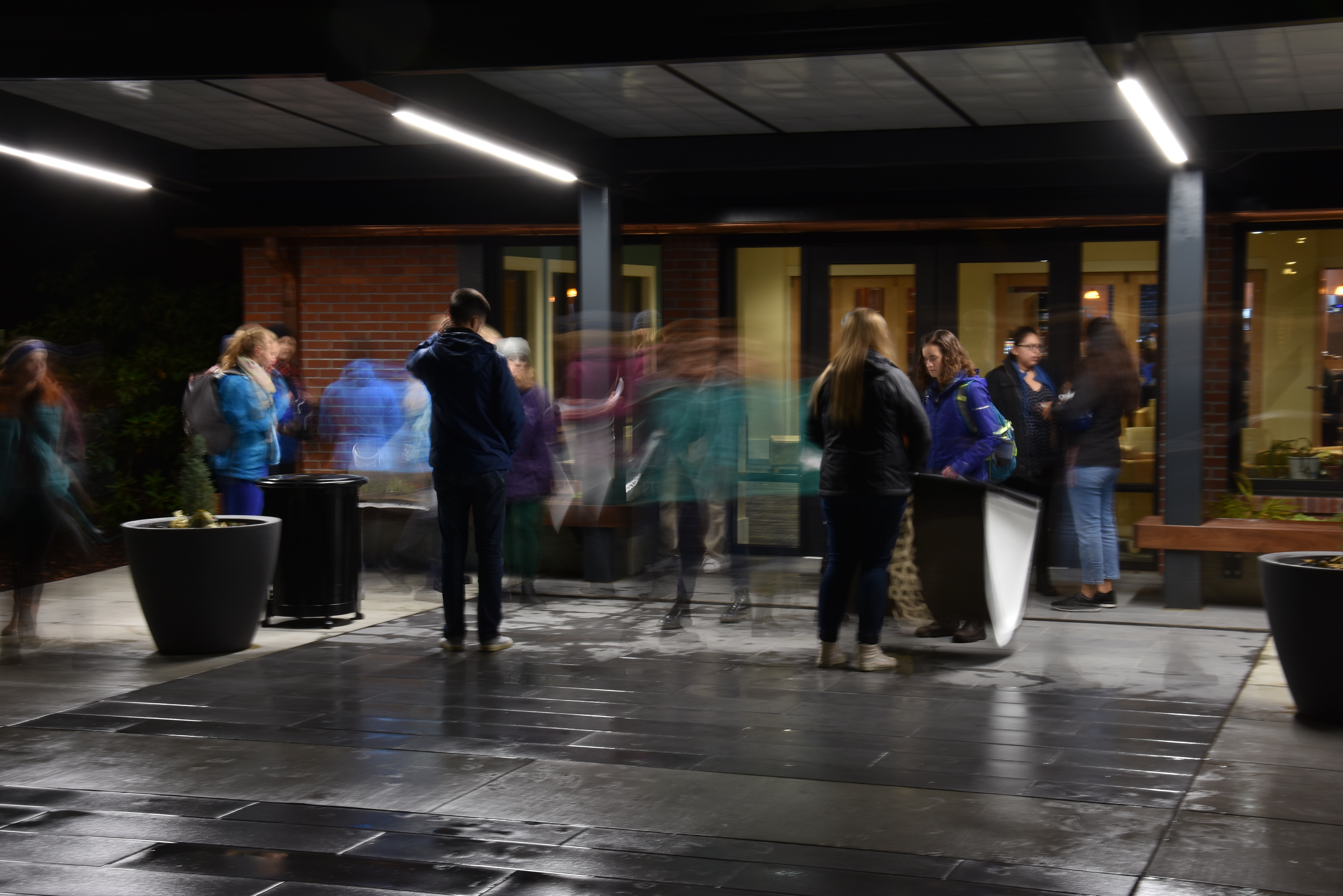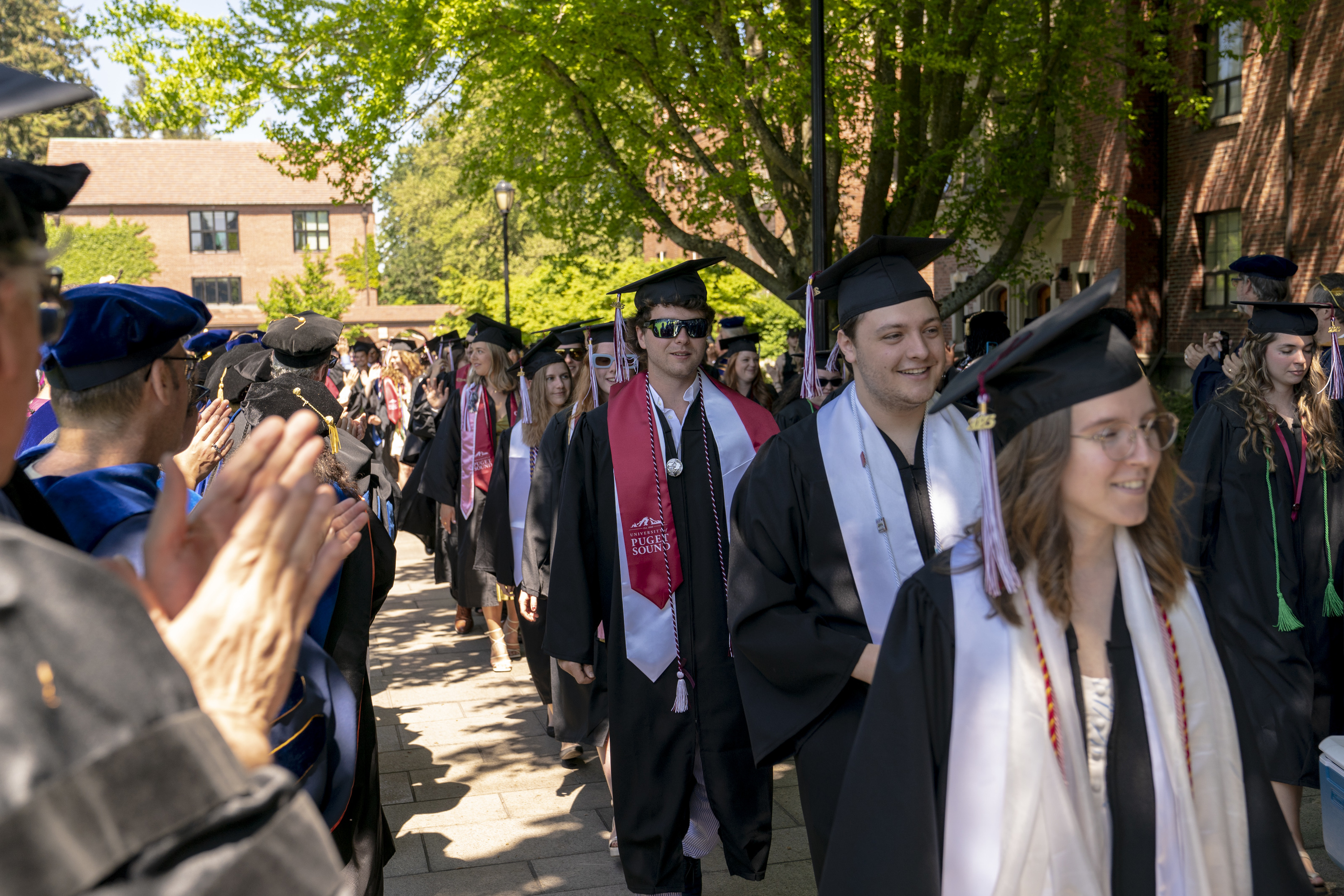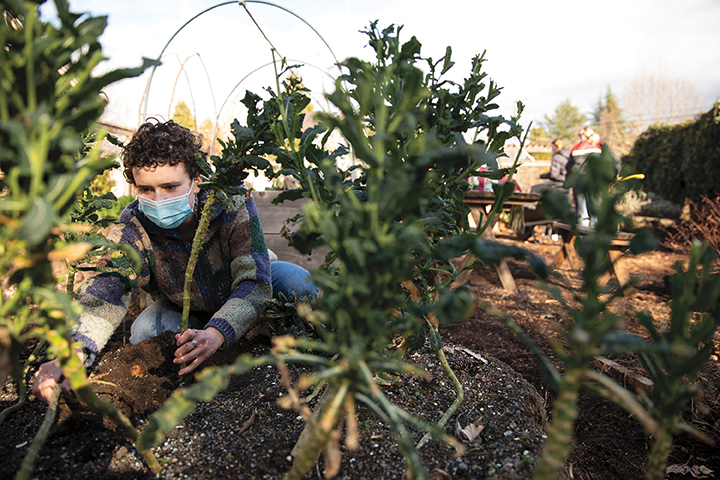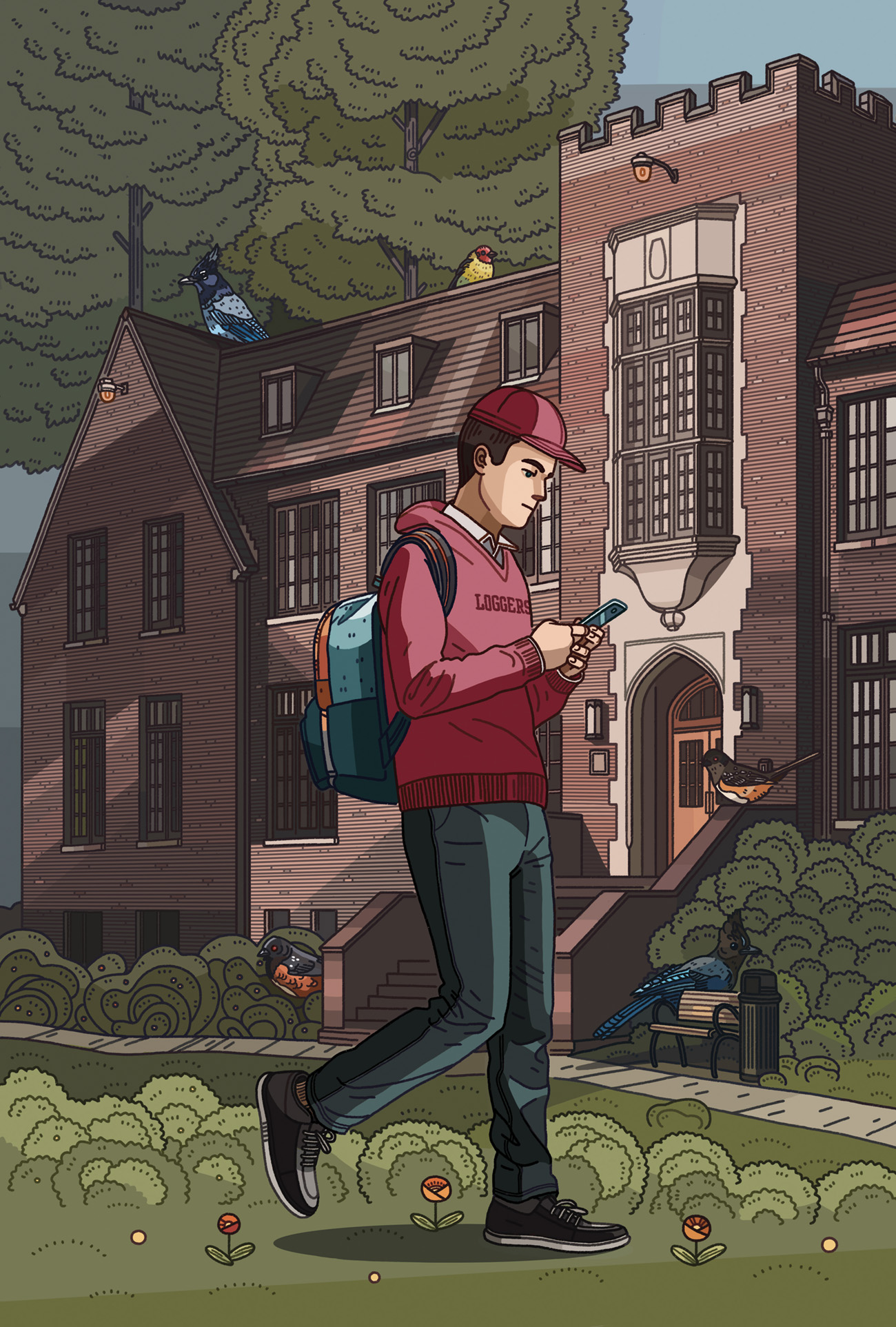Graduating theatre arts students present their capstone work in the Senior Theatre Festival
For more than 20 years, one rite of passage has awaited Puget Sound theatre arts majors each spring—and it isn’t graduation. The Senior Theatre Festival is something of a trial by fire, but Loggers are well prepared to take the stage and not easily singed.
The culmination of two semesters of work, the festival presents multiple full-length, staged productions over several weekends each April and May. The productions are selected, cast, produced, and directed by graduating majors in the theatre arts department, their work serving as their senior theses and capstone projects.
“By the time you’ve graduated in the theatre arts department, you’ve experienced a wide variety of different roles within a particular production or class, or in a research capacity,” says Molly McLean ’19. “You’re seeing many different sides of theater research and production so that you have a really well-rounded approach to understanding theater.”
As one of the leads in The Lady’s Not for Burning by Christopher Fry, as well as the play’s dramaturg, Molly has spent the semester learning, researching, and annotating the show. She even wrote her honors thesis on it. “There aren’t many verse plays in English that are popular other than Shakespeare,” she says. “It’s filled with joy and love, and that’s all expressed through the text. People tend to think of this kind of play as silly or unimportant. What we’re trying to do is crack it open and [find] our way into the play.”











